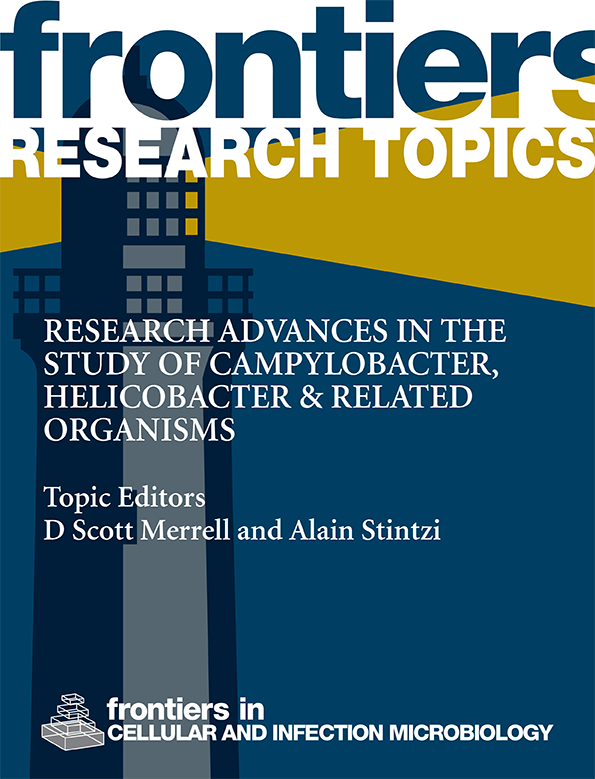针对多种幽门螺旋杆菌的个性化根除治疗的下一代测序面板的开发与验证
IF 4.6
2区 医学
Q2 IMMUNOLOGY
Frontiers in Cellular and Infection Microbiology
Pub Date : 2024-08-29
DOI:10.3389/fcimb.2024.1379790
引用次数: 0
摘要
导言幽门螺旋杆菌根除率的下降主要归因于抗生素耐药性,而无视宿主代谢能力的统一用药则进一步加剧了这一趋势。因此,根据抗生素耐药性相关变异和宿主的代谢表型应用个性化治疗有可能提高根除率。方法 设计了一个用于个性化幽门螺杆菌根除治疗的定制下一代测序面板(NGS-PHET),该面板针对幽门螺杆菌和人类质子泵抑制剂(PPI)代谢中的阿莫西林、克拉霉素、甲硝唑、四环素和左氧氟沙星耐药性区域。这些文库是按照定制方法构建的,并同时进行了测序。根据之前报道的抗生素耐药性相关变异和宿主的 PPI 代谢,将定制的框架标准应用于 NGS-PHET 结果,为每个受试者提出个性化治疗建议,并通过每个受试者的实际根除结果进行验证。同时,还发现了5个CYP2C19同源广泛代谢者和3个CYP3A4中间代谢者。在总共 12 名受试者中,根据定制的框架标准,建议对 5 名受试者采用克拉霉素三联疗法,对 6 名受试者采用铋剂四联疗法,对 1 名受试者采用利福布汀三联疗法。讨论采用 NGS-PHET 和定制框架的方法有助于对大多数耐抗生素幽门螺杆菌菌株患者进行快速有效的根除治疗,也有助于寻找新型耐抗生素候选菌株。本文章由计算机程序翻译,如有差异,请以英文原文为准。
Development and validation of next-generation sequencing panel for personalized Helicobacter pylori eradication treatment targeting multiple species
IntroductionThe decreasing Helicobacter pylori eradication rate is primarily attributed to antibiotic resistance, and further exacerbated by uniform drug administration disregarding a host’s metabolic capability. Consequently, applying personalized treatment based on antibiotic resistance-associated variants and the host’s metabolic phenotype can potentially increase the eradication rate.MethodA custom next-generation sequencing panel for personalized H. pylori eradication treatment (NGS-PHET) was designed which targeted the regions for amoxicillin, clarithromycin, metronidazole, tetracycline, and levofloxacin-resistance in H. pylori and human proton-pump inhibitor (PPI) metabolism. The libraries were constructed following customized methods and sequenced simultaneously. The customized framework criteria, grounded in previously reported antibiotic resistance associated variants and the host’s PPI metabolism, was applied to the NGS-PHET results and suggested a personalized treatment for each subject, which was validated through each subject’s actual eradication outcome.ResultsBoth previously reported and novel variants were identified from H. pylori sequencing results. Concurrently, five CYP2C19 homozygous extensive metabolizers and three CYP3A4 intermediate metabolizers were identified. Among the total of 12 subjects, clarithromycin triple therapy was suggested for five subjects, bismuth quadruple therapy was suggested for six subjects, and rifabutin triple therapy was suggested for one subject by following the customized framework criteria. The treatment suggestion for nine of the 12 subjects was consistent with the treatment that each subject achieved eradication with.DiscussionApplying the methodology using the NGS-PHET and customized framework helps to perform eradication treatment quickly and effectively in most patients with antibiotic-resistant H. pylori strains, and is also useful in research to find novel antibiotic-resistance candidates.
求助全文
通过发布文献求助,成功后即可免费获取论文全文。
去求助
来源期刊

Frontiers in Cellular and Infection Microbiology
IMMUNOLOGY-MICROBIOLOGY
CiteScore
7.90
自引率
7.00%
发文量
1817
审稿时长
14 weeks
期刊介绍:
Frontiers in Cellular and Infection Microbiology is a leading specialty journal, publishing rigorously peer-reviewed research across all pathogenic microorganisms and their interaction with their hosts. Chief Editor Yousef Abu Kwaik, University of Louisville is supported by an outstanding Editorial Board of international experts. This multidisciplinary open-access journal is at the forefront of disseminating and communicating scientific knowledge and impactful discoveries to researchers, academics, clinicians and the public worldwide.
Frontiers in Cellular and Infection Microbiology includes research on bacteria, fungi, parasites, viruses, endosymbionts, prions and all microbial pathogens as well as the microbiota and its effect on health and disease in various hosts. The research approaches include molecular microbiology, cellular microbiology, gene regulation, proteomics, signal transduction, pathogenic evolution, genomics, structural biology, and virulence factors as well as model hosts. Areas of research to counteract infectious agents by the host include the host innate and adaptive immune responses as well as metabolic restrictions to various pathogenic microorganisms, vaccine design and development against various pathogenic microorganisms, and the mechanisms of antibiotic resistance and its countermeasures.
 求助内容:
求助内容: 应助结果提醒方式:
应助结果提醒方式:


